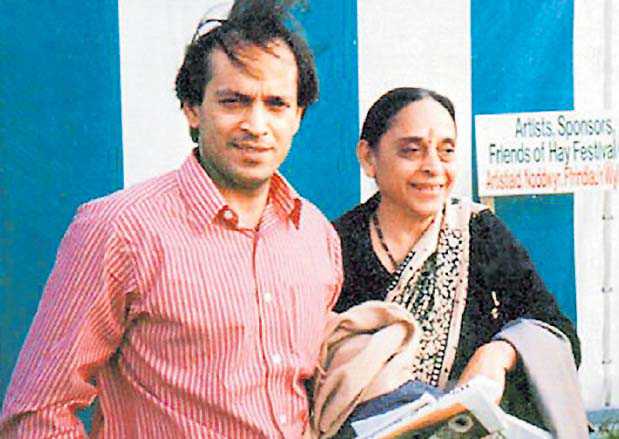New Delhi, May 6
Leila Seth died the way she lived — in the service of people. The first woman chief justice of a high court (Himachal Pradesh, in 1991), and author Vikram Seth’s mother, she had pledged to donate her organs before her death. Seth was 86.
“She died of a cardiac seizure last night. My brother Vikram, sister and our other family members are here,” her younger son Shantum Seth said. There would be no funeral as the organs had been donated.
(Follow ; and )
In Delhi, acclaimed art historian Kapila Vatsyayan described the demise of Justice Leila Seth as a huge loss.
“For a person with so many public positions to possess, such qualities of humility and humaneness are rare. I had the greatest admiration for Justice Seth and had met her only a couple of weeks ago,” Vatsyayan, Life Trustee of the Indian International Centre, said.
Vatsyayan said Justice Seth was “an extraordinary person, a wonderful jurist, a writer par excellence, a mother of very talented children and a rare human being”.
“She was the rarest of rare persons in the sense of being the first woman chief justice of a high court and also the first woman judge of the Delhi High Court,” Vatsyayan said, recalling Justice Seth’s contributions to IIC in her two terms as an elected trustee.
As a longtime friend of Justice Seth, Vatsyayan, a former Rajya Sabha MP, mentioned how “wonderful a mother” the deceased jurist was to her famous children. Vatsyayan, 88, said their association began 20 years ago when the two came together to serve as IIC trustees.
Justice Seth, who led an illustrious life, was most recently hailed for her radical contributions to the Justice JS Verma Commission report on criminal law amendments proposed in the wake of the 2012 Delhi gangrape case.
As a member of the commission headed by the late Justice Verma, Justice Seth argued passionately for the inclusion of marital rape as a crime under the IPC and flagged links between missing children and sexual trafficking.
Despite an overwhelming opinion against criminalisation of marital rape on grounds that it could be misused and would be difficult to prove, Justice Seth argued for making it an IPC offence, saying it would provide women in abusive marriages a tool to protect themselves.
Earlier, Justice Seth turned over a new leaf in women’s rights when she contributed to historic changes in the Hindu Succession Act, giving daughters equal rights in joint family property. She was also a vocal critic of Section 377 of IPC, which criminalises same-sex relationships and persistently spoke for LGBT rights. — TNS
Unlock Exclusive Insights with The Tribune Premium
Take your experience further with Premium access.
Thought-provoking Opinions, Expert Analysis, In-depth Insights and other Member Only Benefits
Already a Member? Sign In Now










